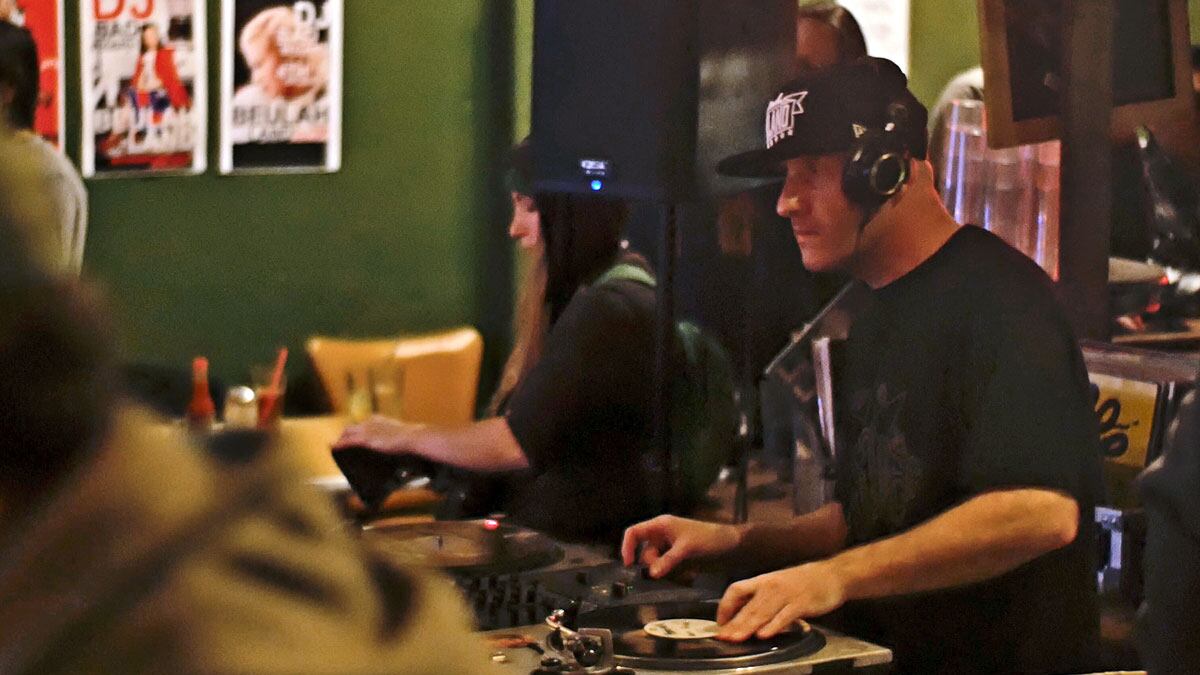In the autumn of 1997, Kirk "DJ Wicked" Kirkpatrick heard about a raggedy new Ladd's Addition nightclub named Jezebel's that had a mid-week opening slot for a regular act. A former graffiti artist and skilled turntablist—he'd battle for a $250K prize on 2011 BET reality show Master of the Mix—Kirkpatrick brought around a crate of vinyl the following Wednesday for the first iteration of what soon became a treasured hub.
Over the next two decades, Wicked Wednesday would survive the closure of more than half a dozen venues, and serve as prime showcase for local MCs sharpening their skills on the open mic. But the fiercely communal nature of the event kept Portland's longest-running DJ night well outside mainstream attention.
To celebrate the 20th anniversary of Wicked Wednesday, now at Beulahland near East Burnside, Kirkpatrick sought out the services of a documentarian via social media. He eventually lured the project's director—Bay Area-transplant Andy Ridgway—from a Facebook post.
Before the film's premier at the Clinton Street Theatre, Kirkpatrick and Ridgway reminisced with WW about the proudly underground event.
WW: What were the early days of Wicked Wednesday like?
Kirk Kirkpatrick: Jezebel's? In '97? It was just a classic old SE Portland dive, you know – beer-stained carpets, smells like piss. Nothing fancy. Now, everyone has a DJ night, but then? For hip-hop? They were few and far between. You could go and see DJs here and there, but I don't know if there was necessarily one consistent hip-hop night anywhere in Portland.
But then Jezebel's closed around 2000?
KK: Ultimately, it was the neighbors. They had to cancel all the DJ nights because of so many noise complaints, and the bar didn't survive much longer after that.
Andy Ridgway: It definitely left its mark. That's where the foundation was laid, and the Jezebel's days are really still the heartbeat of Wicked Wednesday. That's the picture that's in everybody's mind despite the fact that it's been in six or seven different venues over the course of 20 years.
How'd the open mic start?
KK: The MCs were already there in attendance just as fans of the music, but, eventually, we started doing this thing every Wednesday—MC Cypher. At midnight, they would come gather around the DJ booth and just pass around the mic. It definitely became a thing. A lot of the MCs will even to this day show up at 11:55 just for their chance to be heard.
Anyone we might know?
KK: Mic Crenshaw, Sandpeople, Oldominion, Al One, Illmaculate …
AR: There are people that come to listen but also get on the mic at midnight. People that DJ with their computers a couple of nights at different venues but then drag out their crate of records to come to Wicked Wednesday because they want to do a set of old vinyl. That's part of the appeal and the beauty of the night. Even if Wicked comes with the same crate of 50 records for a whole month, it's never going to be the same because of the other DJs rotating in and out of there every week.
You had breakdancers?
KK: Breakdancers, yeah. Still do. Graffiti. All the elements. It's traditionally been the gathering place for graffiti writers, breakdancers, rappers, DJs—kind of like the hub for all those people—and it still captures a lot of the same old characters and the same old charm as it always has. We really try to preserve what it was like 20 years ago.
Was it difficult to capture that era in the movie?
KK: He incorporated a lot of old photos. Not everyone had a camera phone 20 years ago.
AR: We did have a little bit from the Jezebel's era, but it's more of a general overview—some breakdancers, some DJs and the crowd . . . It's not really a historical record of the Wicked Wednesday story from beginning to end. It's more like this is what the night is and has always been.
What did you discover about Wicked Wednesday as you were making the film?AR: There's a whole cast of characters that I interviewed for the movie, and what surprised me the most about the people I talked to was the emotional element. There was this consistent vibe to longtime patrons where you could tell they loved going there. Being a part of that tight-knit community is a big deal. It's special. It's like a family.
SEE IT: Wicked Wednesday: The Documentary premieres at Clinton Street Theatre, 2522 SE Clinton St., cstpdx.com. 6 pm. Free.

